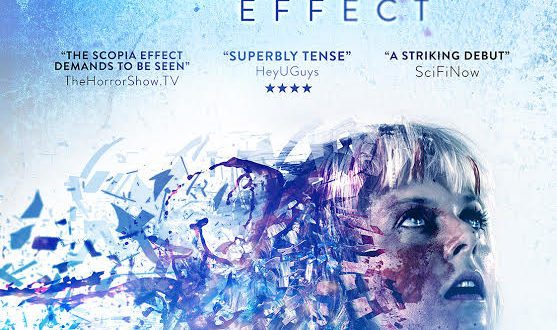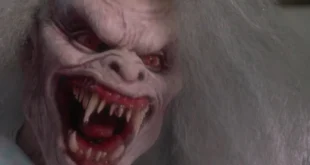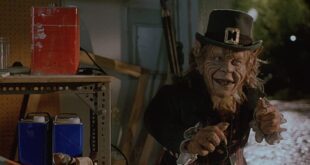Christopher Butler’s The Scopia Effect is a unique reincarnation-themed horror story. What makes it unique? It blends concepts of hypnosis, reincarnation, mind, body and soul, and suggests that delicate minds shape the violence of the past, present and the future.
Starring Joanna Ignaczewska, Akira Koieyama, and Julian Seager, The Scopia Effect is now available in digital format on Amazon, ConTV, Dish, Google, Hoopla, InDemand, EST, iTunes, Overdrive, PlayStation Vudu, and Xbox.
An obvious question is (fortunately) addressed right at the start of the film:
What is a Scopia?
We are told it’s a word feared by ancient pagans that symbolizes an inexorable dark entity. While it’s still vague, the meaning is illuminated enough to interpret it through events — and that’s exactly how the story unfolds.
How does the craziness develop? The main character, a Polish lady named Basia (Ignaczewska), undergoes hypnosis to deal with losing her mother. When discussing what he does, the hypnotist likens the mind to an attic. He’s just trying to “throw out boxes” and relieve her from her trauma. Of course, if it was a smashing success, we wouldn’t have this movie, would we?
Instead, we get fascinating glimpses into what are often called past life regressions, typically (though not always) from ancient times. One of Basia’s past lives is from England, along with pasts from France and Japan, Germany and Africa.
As you can see, The Scopia Effect’s story is already good as a concept — without even adding horror elements. But when you add in horrible deaths for each life, throw in interesting imagery, and have the main character lose her mind, it’s not the most formulaic movie ever devised.
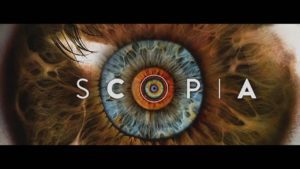
Now, I can imagine some criticisms for it, but I’d be pretty quick to shoot those down. For example, Basia’s own life story isn’t really elaborated upon greatly. Basically, we just get to know her a little bit. She’s a human being who has a job, has lost someone due to tragic circumstances, and just wants to lead a normal life. We don’t get to know much about her.
But here’s the thing: The story isn’t just about her. It’s more about her mental state and how she copes with an imminent mental crisis (which we get to know as hauntings). If more details were thrown our way, Basia might become less relatable. So, as far as I’m concerned, it was actually a smart decision to leave some basic, everyday details of her life a little murky. The spotlight can then shine brighter on her unsettling interactions with the past, and we are left to unveil the mysteries on our own.
Also, this decision beckons the viewer to ask: How well does Basia know herself? In fact, how well does anyone know themselves? The mystery obviously also grows for the reincarnation elements. Is reincarnation a real possibility? If so, could aspects from past lives creep to the forefront and interrupt our present selves?
While it’s easy to dismiss reincarnation as New Age, supernatural gobbledygook, there is perhaps more plausibility to it than other supernatural concepts. If we’re all made of matter, presumably that matter could (eventually) find its way into another, living physical form. Maybe. While this doesn’t mean intelligence/experience is similarly transferable, it is interesting and fascinating to think about.
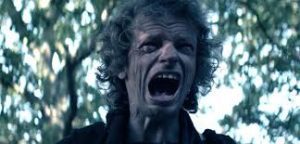
As the story develops, we wonder how long this train of past lives has gone on, and how long it could go on. There are weird circumstances to every life, just like in real life.
One memorable character — whom I will call Crazy Chicken Guy — is put at odds with a child who stole an egg from his chicken coop. Then, of course, there are murders over revenge, misunderstandings, and presumably just hatred.
Another aspect of Basia’s insanity is her disconnection from people. She seems to have few relationships with those around her, and it’s implied that this fact alone could make her relatable. Indeed, partly reflected in her character is an insular nature, paired with paranoia, trauma and an inability to cope through normal means. After all, what else would lead someone to a hypnotist’s chair?
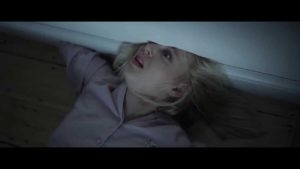
Finally, I want to discuss the imagery, which was very well done, and not overpowering unless it needed to be. In other words, it’s the rare kind of film that understands subtlety and how to work it, yet is capable of being simultaneously over the top.
For example, at one point, we see the juxtaposition of a dead rabbit hanging while we hear a man being severely beaten. The result is an unnerving and vaguely uplifting suggestion of death’s inevitability for all life forms. Yes, death is the great equalizer, tying it all together nearly as much as life.
The Scopia Effect is like a less weird David Lynch film. It’s a great example of style emanating from the story, rather than replacing it.
Check it out!
 PopHorror Let's Get Scared
PopHorror Let's Get Scared
